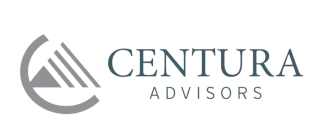Exploring various investment options and account types can be overwhelming, making it challenging to determine where to start. The abundance of available information, including advice from your financial advisor, friends, family, neighbors, and even strangers on social media, can further complicate the decision-making process (though the chances of overnight riches are slim!).
At Centura Advisors, we emphasize the importance of strategic financial planning to help you achieve your goals. Our goal is to support you in building a solid foundation for financial success by providing the knowledge and skills necessary for informed decision-making.
Where Should My Money Go First?
While this serves as a general roadmap, it's crucial to recognize that each individual's financial situation is unique. What works best for your neighbor may not be the optimal approach for you. You might need to adjust the order of your investments or explore different vehicles to align with your specific goals, so always consult with your financial advisor!
1. Emergency Fund
A Financial Safety Net
Your financial journey begins with building a robust emergency fund. Park this money in a liquid, low-risk account for quick access in times of unexpected expenses.
This safety net can prevent you from having to take on unnecessary debt (likely in the form of high-interest rate credit card debt) when life throws financial shocks your way. You'll sleep better at night.
2. Employer-Sponsored Plans
Seizing the Benefits
Next up, prioritize contributing to your employer-sponsored plans, such as your 401(k) or 403(b). This isn't just a retirement savings vehicle; it's a key part of your compensation.
By contributing and taking advantage of employer matching contributions, you'll receive 100% of the compensation your employer intended to invest in you. Failing to contribute means letting your employer keep a slice of your hard-earned money that could be working for you in the long run.
Example:
- Your Contribution: $1000
- Employer Match: $1000
- Total Invested: $2000
In this scenario, you've instantly doubled your investment, setting the stage for long-term growth. Now, compound interest can work harder for you!
3. Individual Retirement Accounts (IRAs)
Maximizing Tax Advantages
Once you've optimized your employer-sponsored plan, consider contributing to an Individual Retirement Account (IRA). These accounts can provide additional tax advantages, helping your money grow more efficiently. IRAs offer flexibility and a diverse range of investment options to align with your financial goals.
Note: There are deductibility restrictions based on if you (or your spouse) are covered by an employer sponsored retirement plan, as well as income limitations. Before opening an account, be sure to verify that you're eligible to receive the tax advantages afforded by investing in IRAs!
4. Individual Investment Accounts
Expanding Your Portfolio
After securing your retirement plans, investing in individual investment accounts can further diversify your portfolio. These accounts offer flexibility and accessibility, allowing you to invest in a variety of assets.
Future Consideration: Saving for Education
While it's natural to prioritize your children's education, your financial future should take precedence. By ensuring you're putting away for retirement, you minimize the risk of becoming a financial burden on your children later in life. Remember, they can secure loans or scholarships for education, but your retirement is a personal responsibility!
Again, be sure to consult with your financial advisor before making any changes to your plan!
See how we can help you make the most of your money! Send us a message to set up an initial discovery meeting... it's on us!
